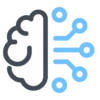A comprehensive customer master data management strategy and approach to good customer data governance are essential for any organization that wants to effectively manage and leverage its consumer data.
This is particularly important for sales, marketing, and service departments that interact directly with consumer customers.
A Customer Master Data Management (CMDM) solution helps manage and maintain a single, consistent view of customer data across the organization. This can include capabilities such as hierarchy management, data modeling, and governance.
But, the Chief Data Officer (CDO) has many product choices to consider as part of the customer data management strategy apart from a Customer Master Data Management solution. Here are a few to consider:
Data Quality Tools help ensure that customer data is accurate, complete, and consistent. They can be used to validate, standardize and cleanse data, as well as to identify and resolve any data quality issues.
Customer data often contains errors, duplicates, and inconsistencies. Data cleansing tools help identify and correct these issues, ensuring data accuracy and reliability. Deduplication tools enable the identification and merging of duplicate customer records, eliminating redundancy and improving data quality.
The Pretectum CMDM also provides some lightweight data quality capabilities including deduplication at the time of data loading and during customer data lifecycle management.
Data Integration Tools help integrate customer data from various sources into a single, unified view. This can include data from internal systems such as CRM and ERP systems, as well as external sources such as social media and third-party data providers.
Integration tooling can assist in the key areas of customer data integration; if you need to combine data from different sources into a unified format and structure. Data integration can also aid data extraction, transformation, and loading (ETL), ensuring that it is harmonized and consistent across systems.
The Pretectum CMDM provides you with various integration options that facilitate integration between systems, particularly if you choose to use the Pretectum CMDM as the data hub.
Data enrichment tools allow you to enhance customer profiles by appending additional information from external sources. This can include demographic data, social media data, purchasing behavior data, and more. Data enrichment enables a deeper understanding of customers and supports personalized interactions.
Data Governance Tools help establish and enforce policies and procedures for managing customer data. This can include capabilities such as access control, audit trails, and data lineage.
Data governance frameworks provide guidelines, policies, and processes for managing customer data. They suggest approaches to compliance with data privacy regulations, established data ownership, defined data access controls, and managed data lifecycle. Data governance tools enable the enforcement of data policies, monitoring of data usage, and tracking of data lineage.
Data Stewardship means rethinking your organization structures and often taking the bold step of selecting and assigning data stewards; stakeholders who are responsible for overseeing the quality, integrity, and governance of customer data is an important step towards better customer data management.
Stewards should establish data standards, enforce data policies, and drive data-related initiatives across the organization. Implementing robust data security measures, including encryption, access controls, and monitoring, to protect customer data from unauthorized access, breaches, or theft along the way.
Configuring solutions like the Pretectum CMDM is an essential part of this process.
Data Privacy and Compliance policies protect customer data and ensure compliance with relevant regulations, such as GDPR or CCPA. Establishing policies and procedures for data handling, access control, and consent management can be reinforced through specific tools and the Precetum CMDM can be leveraged to augment or support such policies.
Depending on how you implement the Pretectum CMDM, the sophisticated Role Based Access Controls allow you to control access, provide audit trails, and also support data lineage views of sources and targets.
Analytics and Business Intelligence (BI) Tools: These tools help analyze customer data to gain insights and make informed decisions. This can include capabilities such as reporting, dashboards, and predictive analytics.
Customer analytics tools, in particular, leverage advanced analytics techniques, such as machine learning and predictive modeling, to gain insights into customer behavior, preferences, and patterns. These tools enable segmentation, trend identification, and data-driven decision-making, empowering sales, marketing, and service teams to deliver personalized experiences and targeted campaigns.
Pretectum’s CMDM provides some lightweight reporting capabilities but also supports your ability to access your Customer Master Data repository in controlled ways for using your own reporting tools.
It’s important to note that a successful customer master data management strategy involves not only the right tools and products but also the right processes, people, and culture. A strong focus on data governance, collaboration between departments, and a commitment to continuous improvement are all essential for achieving success.
To effectively manage customer data from these diverse sources, you need to leverage the most appropriate data tools, policies, procedures, frameworks, methods, and products; at Pretectum we think that a CMDM is one of those data tools.


